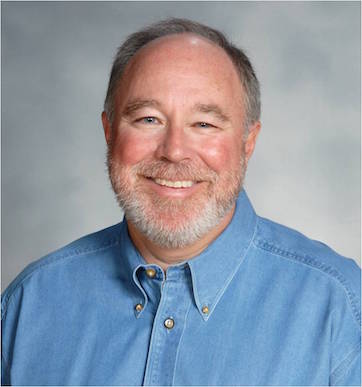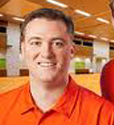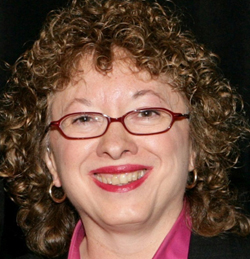Since then, he and two new partners — Eric Arnson and Glen R. Bressner — have founded Originate Ventures, a venture capital funding organization for early-stage technology companies. From its start in 2007, Originate has built a portfolio of 13 companies in Pennsylvania and surrounding areas, nine of which have an annualized revenue of more than $100 million.
Gausling, a native of Cincinnati, Ohio, has been a life-long enterpreneur, and has never lost his love for start-ups. In addition to his work with Originate, which includes a lot of mentoring, Gausling is a managing partner in The Brand Experience, a creative production company in Cincinnati. He is also treasurer of Lehigh Valley Industrial Park, a nonprofit land development company, and a board member of the Community Action Committee of the Lehigh Valley.
What inspired you to start Originate Ventures?
I retired from OraSure in 2004 at age 46, after a great run with my two partners there who had already left, and I wasn’t ready to be retired. So the question was, how do I reinvent myself? Would I start up a new company? Would I try to take a job as a CEO? Would I be a stay-at-home dad and soccer coach?
I was off for three years and decided I loved the adrenaline rush of being around early-stage technology companies. If there’s something I don’t want to miss, it’s the 24/7 obsession… I decided to start an early-stage fund, where I could have the adrenaline rush, but as a mentor and investor, not as a CEO grinding it out.
How do you start a venture fund?
You build a Russell 2000 company from scratch and get a 70x return on investment (OraSure), and put it on the abandoned Bethlehem Steel site in south Bethlehem, and you earn trust over 17 years, with great partners. [After that], the community embraced me giving this a try.
I put $2 million of my own money in to start the fund, leading by example, and Eric [Arnson] put in another $2 million. We went out to raise $15 million in the local community. I had a high profile because of OraSure. My reputation was well-established over a long period of time. We were obviously committed to the community; I put $2 million into buying and renovating the Victory Firehouse on the Bethlehem Steel site, in a KIZ next to OraSure. We raised $30 million in six to eight weeks.
Out of our 126 investors, about 120 are angels, which is extraordinary. Our institutional investors are large ones; the state of Pennsylvania is the largest. They have a matching fund: for every $3 raised, they match a dollar, and that was an enormous help.
How has Originate grown since then?
A year later, I got a call from Glen Bressner. He and his partners had run up four successful venture funds (Mid-Atlantic Venture Funds). His partners wanted to retire and he wanted to keep going, so we were fortunate enough to have him join us.
After 2008, we expanded our fund to $46 million. We have proceeded to invest about $36 million in 17 start-ups.
We are a limited partnership and we have one employee, Shannon Morin, who worked for me for eight to 10 years at OraSure. She is the fourth leg of our three-legged stool; she’s someone I absolutely trust.
The annualized revenue of nine of our 13 portfolio companies is over $100 million, based on third-quarter results. In terms of spurring the economy of the technology environment in eastern Pennsylvania and the Pittsburgh area, that’s a large number for an early-stage venture fund.
We have had one exit, a company that was sold to Google about three years ago. Two companies are now out of existence.
Tell me about some of the companies in your portfolio.
Our first company was Adhezion Biomedical (which develops, manufactures and commercializes cyanoacrylate-based surgical glues) in Wyomissing (a suburb of Reading). One of our most visible, high-profile companies is CareKinesis (a medication management company in Moorestown, N.J.). Both of those are very exciting.
Micro Interventional Devices (a cardiovascular medical device company in Newtown) is still in the lab, but also very exciting. Each one has a story, and they show extraordinary promise.
We have an eclectic mix of technologies and leadership teams. Some pull it off and some flame out badly. It’s hard stuff, but I wouldn’t want to be anywhere else.
We have companies in Pennsylvania, New York, Connecticut, New Jersey, Delaware and Virginia — and one in this building (TB Biosciences, which is developing a quick and accurate test for tuberculosis).
What are you looking for when you fund a company?
A great leadership team and a highly differentiated product in an emerging market category with early customers already in place.
How many applications do you get?
I’ll give you an example: In our third year, we got well over 1,000 business plans; we met with about 250 companies and did three deals. We invest in a very small percentage of the companies that come to us.
What has been the biggest challenge in running Originate?
For me, because I’ve been an entrepreneur all my life, the thing that’s the most difficult is that I’m used to working 24/7, and I thought everybody worked that way, for free.
When we started OraSure, my partners and I were single, working low-level jobs in big companies. We came to Bethlehem using credit cards to make ends meet, living in student housing, just obsessed with commercializing our products and technologies. If we had any money left over, we’d invest it in people or in growing the business. Our windfall came after years of grinding it out and living grossly under-capitalized. It was stressful, but that’s the way we did it.
I’ve been less than thrilled by the fact that people come to be funded and they want employment agreements and option programs — they act more like hired guns than early-stage entrepreneurs with a gleam in their eye.
The CEOs we’re seeing now often have had one or two exits, they have a mortgage, maybe kids in college, and they may not be willing to put everything on the line. They have great skill sets, highly differentiated products and are good leaders. I just have to get over this whole idea of having no personal benefits for founders.
What’s next for Originate?
We’re done making investments, so we’re very focused on making our existing portfolio companies as successful as we can. Mentoring is an obsession now. We’re not done until every company is sold.
Writer: Susan L. Peña

http://www.originateventures.com/
205 Webster Street Bethlehem, PA 18015


